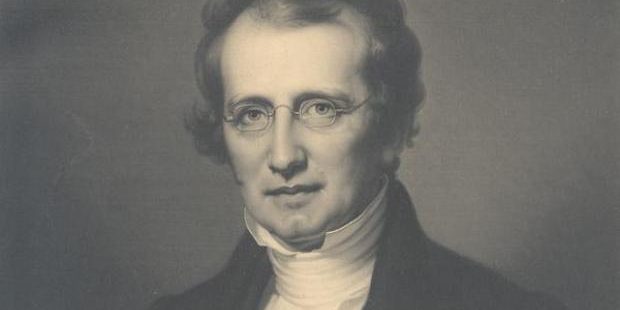
Hodge and Bavinck on Theological Method
“The Bible is to the theologian what nature is to the man of science. It is his store-house of facts. . . . The duty of the Christian theologian is to ascertain, collect, and combine all the facts which God has revealed concerning himself and our relation to Him.”[1] In the opening chapter of his three-volume Systematic Theology, Charles Hodge describes the discipline of theology as a science. Hodge’s analogy seems to assume that the Bible does not present a system of theology but is instead a collection of theological facts which must be systematized by the theologian. In recent years, Hodge’s theological method has been criticized by several evangelical theologians.[2] According to his critics, Hodge’s science analogy fails to account for the theological reflection already present in Scripture and runs the risk of methodological naiveté, assuming that we can approach theology in a purely objective way. A more sympathetic reading of Hodge would acknowledge the Liberal subjectivism to which Hodge was responding, the provision he makes for human bias, and the ways in which his own practice of theology was more indebted to biblical theology than his stated method may suggest.[3] Nevertheless, defining theology as an empirical science and the Bible as its raw data does seem to be an inadequate view of both Scripture and theology.
From Hodge to Bavinck
Interestingly, Hodge’s empirical method attracted critics in his own century, as well. The Dutch Reformed theologian, Herman Bavinck, explicitly set his own method over against the method of Hodge. Bavinck explains that his “synthetic-genetic method must not be confused with the empirical or experimental method, as this happens in Charles Hodge” among others.[4] Hodge’s Baconian method proceeds in three steps. First, the theologian collects the facts. Then, he frames a hypothesis to account for these facts. Finally, he tests his hypothesis by experiment—in this case, by examining all of the relevant divine revelation.
This method is deficient, according to Bavinck, because it fails to reckon with the Bible’s own interpretation of the facts of revelation. “In divine revelation,” Bavinck writes, “word and fact are always connected.”[5] The facts of the Bible are not merely waiting there in the text for the theologian to explain and organize them. The facts of revelation are already accompanied by God’s interpretation and explanation of them. So, for Bavinck, “the term hypotheses is completely inappropriate here,” as is the idea that we use “experiment” to test our theological hypotheses.[6] Scripture is not merely a storehouse of facts; it is God’s word-fact revelation of himself and his works in the world.
Relating Scripture and Dogmatics
Leaving to one side the question of whether or not Bavinck’s criticism of Hodge is warranted, given Hodge’s actual practice of theology, it is worth noting the strength of Bavinck’s approach in relating Scripture and dogmatics. To put it in contemporary parlance, Bavinck’s method draws a closer connection between biblical theology and systematic theology than does a more “empirical” method. Bavinck describes his method as “genetic-synthetic.” It is genetic because it “sets forth the truth in terms of its own course of development.”[7] In other words, dogmatic or systematic theology ought to reflect the theological development already present in Scripture. It is synthetic because it seeks to set forth the truth “in a manner in which all its parts stand in their organic relation to each other.”[8]
The relevant point is that the truths of the Christian faith are already organically related to each other and do not require an extra-textual organization on the part of the theologian. Dogmatic theology does not simply ape the findings of biblical theology; it operates with its own distinct form and method (treating doctrines according to its traditional loci). But dogmatics should consciously seek to reflect the organic relationship between Scripture and theological formulation as well as the organic relationship between the various doctrines of the faith. After all, the content of the two disciplines—biblical theology and dogmatics—is the same, namely, the word-fact revelation of God in Scripture. Dogmatics should consciously seek to reflect the organic relationship between Scripture and theological formulation as well as the organic relationship between the various doctrines of the faith. Share on X
In many ways, Herman Bavinck anticipated the concerns of many contemporary evangelical theologians. His method draws a closer connection between biblical and systematic theology than Hodge’s did, in theory, if not in practice. Bavinck also presciently observed that there is no such thing as an uninterpreted fact, not even in the discipline of theology. The facts of revelation have already been interpreted by God in his Word. Dogmatic theology must seek to reflect this divinely-inspired interpretation of God’s creative and redemptive acts.
Endnotes
[1] Charles Hodge, Systematic Theology, 3 vols. (New York: Scribner, Armstrong, and Co., 1873), 1:10,11.
[2] The list of Hodge’s critics on this point includes John Frame, Kevin Vanhoozer, Stanley Grenz, John Franke, and Richard Lints.
[3] For a thoughtful defense of Hodge against this critics, including Herman Bavinck, see Paul Helm’s article on the topic here.
[4] Herman Bavinck, Reformed Dogmatics, 4 vols., ed. John Bolt, trans. John Vriend (Grand Rapids: Baker, 2003), 1:93.
[5] Ibid., 94.
[6] Ibid.
[7] Ibid., 65.
[8] Ibid.

